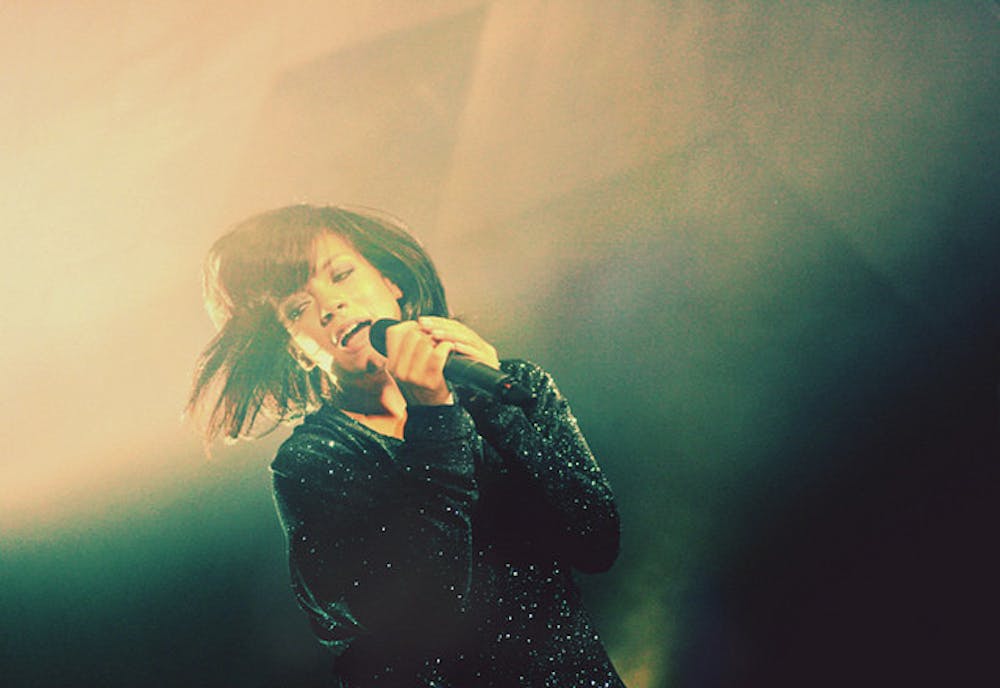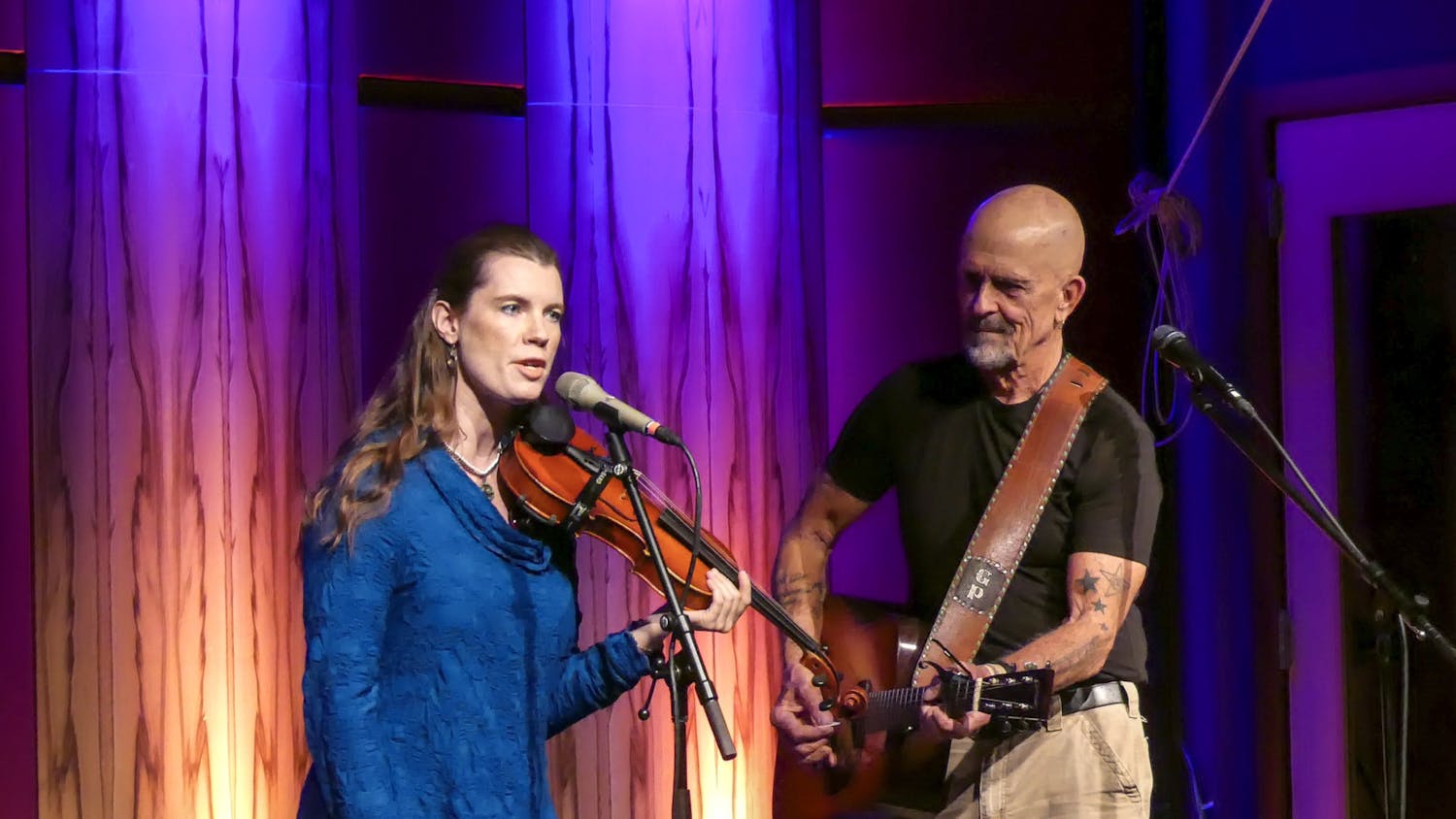To be honest, I’m here to talk about the song.
But of course everyone had a cow about the music video, which was an entirely different beast – a decidedly bigger, yet less complicated, one.
So can we talk about this video for a second?
Many have already said that it’s wildly contradictory in comparison to the lyrics of the song.
The video begins with an aside – completely separate from the song, yet I wish listeners could see (or at least hear) this portion before they experience the rest of “Hard Out Here.” The video shows a conscious Allen in an OR, with multiple surgeons bustling around her. They seem to be performing lipo suction; the artist is covered up, so there’s really nothing graphic about the shot. A fictional manager stands near the table. His face in his phone, he relays information to Allen concerning the statuses of her gigs with various late-night talk shows, which are decidedly “rejected.” He stops his messaging for a moment only to criticize Lily’s body, which we still can’t see: “How could anyone let themselves get like this?”
Her response is perfect – too exhausted to dignify his judgment with an emotional response, perfectly logical and full of contempt: “Um… I had two babies…?”
From there, the song and video run together.
While Allen does not make any direct references within the song to the unavoidable and unfixable (by natural means) ways a woman’s body can be changed by giving birth to a baby, she uses this scene to set the tone of the video.
Apparently, a lot of people missed the memo.
The opening scene in the OR communicated to the viewer that Allen exists in a world where femininity and womanhood are defined by others – where her own status as a successful or unsuccessful woman in the music industry is outlined and molded by what others believe.
Jon Blistein from Rolling Stone explains this perfectly in his review of the single: “her manager tries to reinvent her as a champagne popping, e-cig smoking twerking machine.”
Of course then she's dancing around an expensive car, popping bottles and smacking the asses of her black back-up dancers. Did I mention they’re twerking? What other current stereotype (“trend”) of the industry could she shove in a 20 second bit?
The scenario she began the video with is supposed to continue on throughout. Allen gives us a short glimpse of how she believes the music industry treats women. If we didn’t believe her, she’s used themes that everyone’s seen a hundred times to shove the truth back in our faces.
Yes, the industry and its viewers do constantly pass judgments on the physiques, appearances, and attire of female artists.
Yes, young black women are reduced to shots of their butt cheeks moving in slow motion in the majority of music videos. Yes, the majority of these music videos are attached to rap songs, performed in large part by young black men.
Yes, slang words that have become synonymous with the words “woman,” “girl,” and/or “vagina” are most often used in these same songs, usually mean to insult, degrade or dehumanize.
Although I can’t speak explicitly for Allen’s intentions, I do not believe she was expressing in any way that feminism excludes the black women of America. Quite the contrary – she was using one of the most obvious and frequently used forms of female degradation in the industry to make a point.
So, instead of accusing her of reaffirming some “belief” non-black women have that black women are “the other” – whatever that means – because she writes and performs a song with lyrics that can be considered feminist, yet expresses the idea in her video that their bodies are commodities (which she was doing satirically), why don’t we take a look at what she’s actually saying in the song?
Well, the word “bitch” comes to mind, but she only used it – what, twice?
HA. Actually, it’s said 73 times. Maybe someone else has a more accurate reading on that? It was hard to count all of the pre-bridge ‘bitch’es, okay!?
What’s the point of that, though? How is it feminist for Allen to say that an unnecessary amount when it’s a word that’s technically used against women?
1) There’s a part of the song where she literally says it five times in a row, just like second-graders getting their favorite new swear word down. She’s making fun of everyone else’s rampant use of the word. By the time the song’s over, it’s not even a word anymore – just a sound combination. By overusing the word, Allen is calling attention to everyone’s desensitization to it, because of the exact thing she’s just done. Tricky, isn’t she?
2) The use of “bitch” in the actual tag line is useful; that’s straight satire. “It’s hard” is straightforward; “out here” meaning in the entertainment industry; “for a bitch,” for a woman who is, according to everyone else around here, just a “bitch.” She calls herself “this bitch” in the first line of the song, suggesting that she knows exactly what she’s talking about – from experience. She’s in the music industry; she’s experienced others attaching her opinions, music, and her identity to this word.
3) Either way you slice it, Allen is making great use of the word. She could be overusing it just to say “I can say it, too, it’s not a big deal” – communicating the message of indifference.
4) If she uses the word to describe herself and other women in the industry, she takes possession over it, and therefore attempts to steal it from those who would use it as a weapon of verbal abuse. I’m not positive on that one; it’s just further interpretation. It’s very possible, though, that she could be reclaiming the word to be used by women for the betterment of women. This idea reaffirms the desensitization of her viewers and fans of the industry to the word and its meanings; this could be helpful or hurtful in the long-run.
Allen runs through all the basic gender stereotypes and expected pressures put on young – and those who are not so young – women in the entertainment industry. She references the double standard, as well.
She also makes many references, including one of mingled self-mockery and pride about how she’s unafraid to say what other’s will not.
But the real satirical win for “Hard Out Here” is the line in which she references lyrics from this summer’s anthem “Blurred Lines” by Robin Thicke.
While the song received a ton of bad press, accusations of it being sexist, etc., the line that was truly sadistic and horrible was the following, by the lovely T.I.:
“So hit me up when you pass through/ I'll give you something big enough to tear your ass in two.”
Allen responded with this: “Have you thought about your butt, who’s gonna tear it in two?” Honestly, I think she was holding back with that one.
Since no one else has even mentioned that violent, woman-hating wordplay, I’d like to say thank you to Lily Allen.
I believe that many of her good intentions with this single were negated by the backlash the corresponding video received.
Though, it’s fair to call her out on a couple lines in the song that express disapproval of women who choose to express their sexuality publicly – or perhaps use it as a career. It’s not very feminist to generalize all women in the industry as brainless just because they “shake [their] ass," not to mention completely false.
All things considered, “Hard Out Here” doesn’t need to be labeled a “feminist anthem” to complete the task it set out to do.
The song called on many issues that the majority of us are so desensitized to that we observe them as commonplace.
Allen asks us to pay attention to “what this bitch is thinking” and reevaluate the state of the industry.
She calls upon us to question its treatment and portrayal of women, and to really think about what a woman in the entertainment industry experiences and why.






